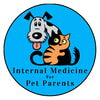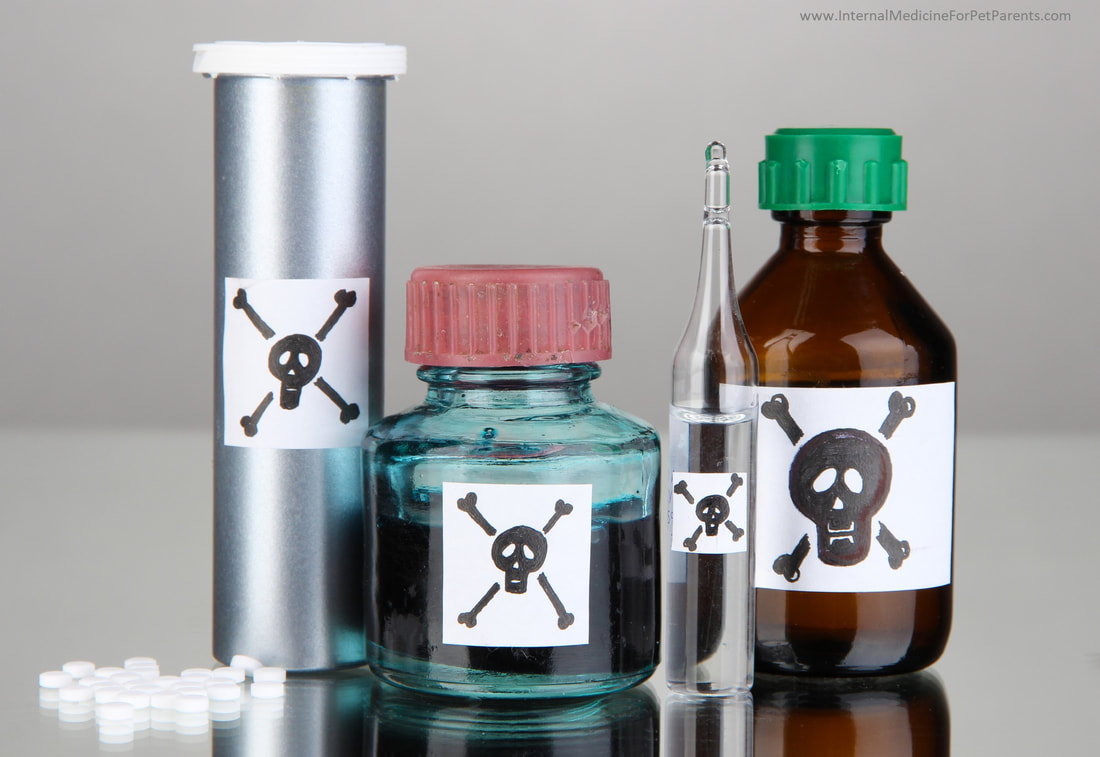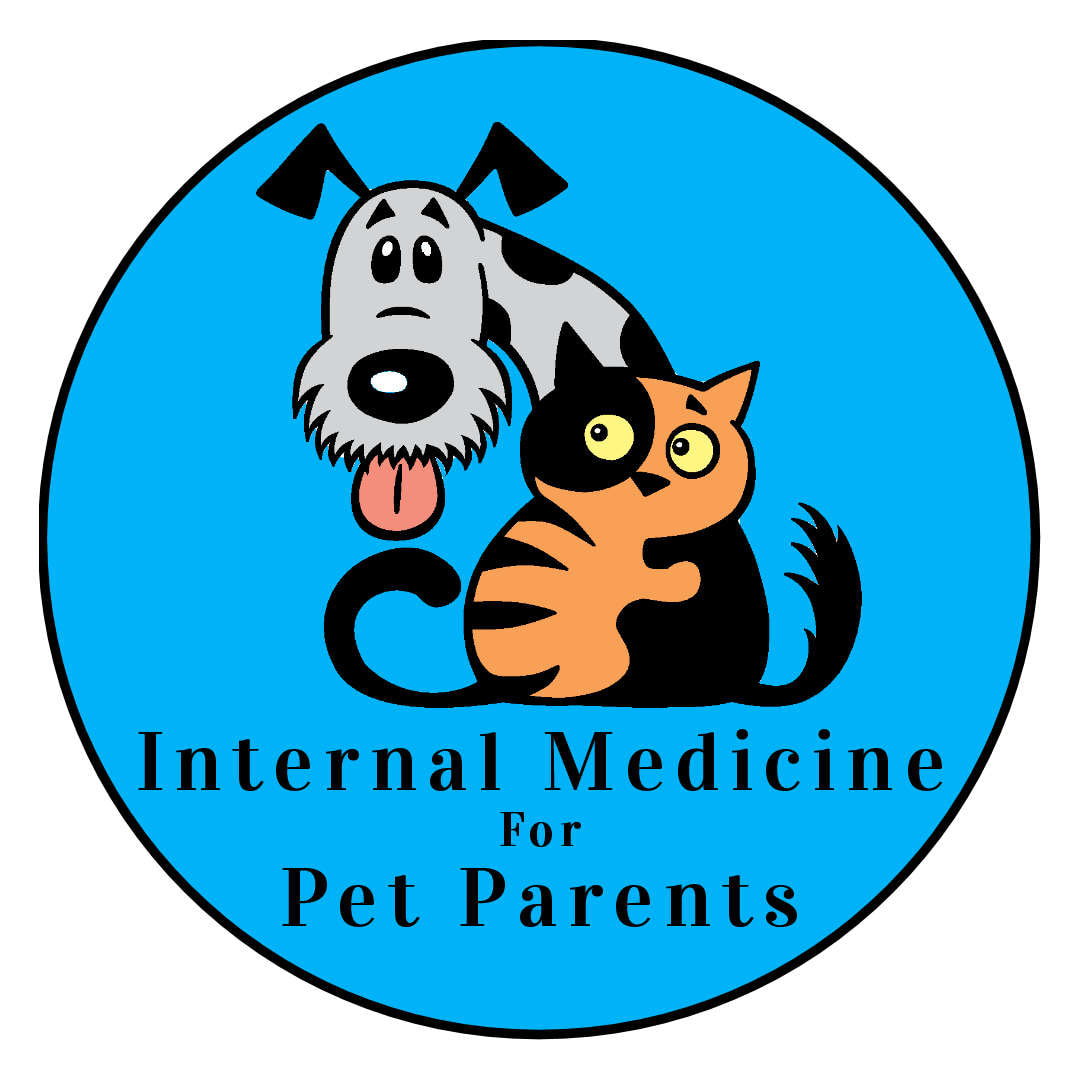|
Unfortunately, our fuzzy little one’s livers cannot handle many of the medications that humans take. This is one of the many reasons why all medications, prescribed by a physician or over-the-counter, must never be shared with your pet. AcetaminophenBoth cats and dogs are unable to process acetaminophen (Tylenol®). As little as 1 or 2 tablets of acetaminophen can cause problems for pets. Acetaminophen causes death (necrosis) to the cells of the liver. As the cells of the liver (hepatocytes) die, pets may start showing signs of sickness. Signs that may be noticed include vomiting, lethargy, decreased appetite, and icterus (yellowing of the skin and eyes). Xylitol Xylitol is becoming more and more popular in sugar-free foods and in health and body products. Xylitol is found in gum, peanut butter, and home-use teeth whiteners. Xylitol can cause complete liver failure. As more and more of the liver dies, it is less and less able to maintain adequate glucose levels within the body. As this happens, some of the signs that may be seen include lethargy, vomiting, confusion, coma and death. (Yvonne's dog, Luna, once ate it from under a desk at school! She spent the day at the hospital because of it.) Sago PalmAnother toxin that pets must stay away is the Sago Palm. This includes all palms and plants that are related to the Sago Palm. Did you know those adorable Bonsai plants that are commonly found in large retail stores are related to Sago Palms? This family of plants contain a hepatotoxin called cycad-associated cycasin. This toxin causes liver necrosis. Signs that may be seen if this toxin is causing issues include vomiting, lethargy, and decreased appetite. Amanita Mushroom Well, since the Sago Palm was mentioned, the Amanita mushroom should be mentioned as well! These mushrooms can grow after just one afternoon of rainfall and can be found in most of North America! Just one or two mushrooms can cause liver necrosis. In cases of Amanita mushroom toxicosis seizures can be seen, as well as other life-threatening signs. Of course, this is only a small sample of the possible toxins that are out there can cause problems. It is good practice to keep all medications, whether prescribed by a physician or obtained over the counter, out of reach from all pets. They should be kept within a cabinet high off the floor. If at any time, there is concern that your pet may have ingested something they should not have, call your Veterinarian immediately. It may also be wise to reach out to the ASPCA Poison Control Center (https://www.aspca.org/pet-care/animal-poison-control). They are fully staffed 24 hours a day with Veterinary Toxicologists. Not only are they able to give you expert advice, but they will also work in tandem with your Veterinarian to ensure the proper treatments will be performed. Bring it with youRegardless of what your pet may have gotten into, if you know what that substance is, it is imperative to share that information with your veterinary team. If you can bring in a sample, a box, or a picture of what they get into, that helps tremendously. That information will help direct treatment to support your pet. Believe me, as a veterinary technician who worked many years in an emergency department, we have heard it all. We will not judge you, we just want to help your fuzzy little one feel better as fast as possible. AuthorAshley DiPrete, RVT, VTS (SAIM) is a Registered Veterinary Technician practicing in California and obtained her Veterinary Technician Specialty in Small Animal Internal Medicine in 2016. She is the co-founder and a contributing author for InternalMedicineForPetParents.com. Visit her author page here.
Comments
|

Ready to Work Together?
Thank you!You have successfully joined our subscriber list. This website is NOT a substitute for veterinary care with a veterinarian. We recommend you follow the advice and treatment plan as prescribed by your veterinarian, and only after discussing anything found on this website with your veterinarian, with their approval, implementing advice found here.
Most of the information on this site is free for you to read, watch or listen to, but Internal Medicine for Pet Parents is also a business. So please expect hyperlinks to be affiliate links in many cases, where we receive a small percentage of sales if you wish to purchase. We only recommend tools, books and services that we use, or people we know personally. Integrity and authenticity continue to be of the highest importance to us. Read the privacy policy here. We hope you find the site useful! Thanks – Yvonne and Ashley Check us out on Facebook!
Categories
All
Archives
October 2019
|



 RSS Feed
RSS Feed